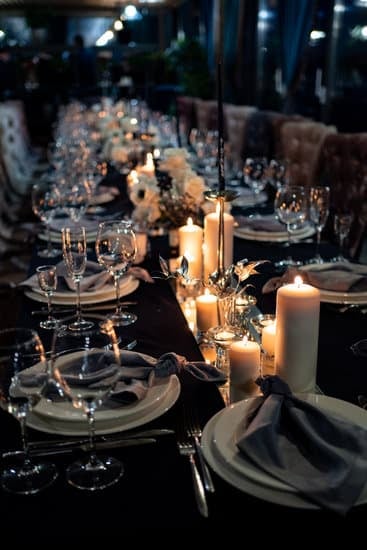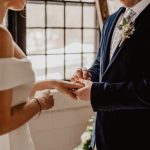Can an ordained minister officiate their own wedding? The concept of self-officiation by ordained ministers has sparked a lot of curiosity and debate in recent years. This article delves into the legalities, personal experiences, religious perspectives, and benefits and drawbacks of ordained ministers officiating their own wedding. Additionally, it offers alternatives, workarounds, and practical tips for those considering this unique approach to marriage ceremonies.
The idea of an ordained minister presiding over their own wedding raises questions about the legality and practicality of such a scenario. While some may view it as unconventional or even controversial, others see it as a meaningful and empowering expression of one’s faith and commitment. In this section, we will explore the concept of self-officiation by ordained ministers and its implications within various legal jurisdictions.
This article seeks to provide clarity on this intriguing topic by addressing the legalities, sharing personal experiences, discussing religious perspectives, analyzing the benefits and drawbacks, exploring alternatives and workarounds, and offering practical tips for those considering officiating their own wedding as an ordained minister. Whether you are a member of the clergy contemplating self-officiating your wedding or simply curious about the practice, this comprehensive guide aims to shed light on all aspects of this unique approach to matrimony.
Clarifying the Legalities
When it comes to the legality of officiating one’s own wedding as an ordained minister, the laws and regulations can vary depending on the state or country. In some places, ordained ministers are allowed to perform self-officiated weddings, while in others, there may be restrictions or additional requirements that need to be met. It’s essential for ordained ministers considering self-officiation to understand the legal implications and ensure that they comply with all necessary regulations.
Understanding State Laws
Each state has its own set of laws regarding who is authorized to solemnize a marriage. While many states recognize ordained ministers as having the authority to officiate weddings, some may have specific rules or limitations when it comes to self-officiation. It’s crucial for ordained ministers to research and understand the laws in their particular state before deciding to officiate their own wedding.
Obtaining a Marriage License
In most jurisdictions, couples are required to obtain a marriage license before their wedding can be legally recognized. Some states may require the officiant (including self-officiating ministers) to register with the local government or obtain special permission in order to perform a valid marriage ceremony. Ordained ministers considering self-officiation should check the specific requirements for obtaining a marriage license and ensure that they fulfill all necessary criteria.
Legal Risks and Considerations
While self-officiating a wedding can be a meaningful and personal choice for some ordained ministers, it’s important to be aware of any potential legal risks or consequences. Failing to comply with state regulations or improperly performing a marriage ceremony can lead to legal complications and even invalidate the marriage. Ordained ministers should carefully weigh the legal aspects before deciding whether or not they can confidently officiate their own wedding within the boundaries of the law.
Personal Experiences
Many ordained ministers find themselves faced with the question, “Can an ordained minister officiate their own wedding?” The answer to this question may vary depending on the location and specific circumstances, but it is not uncommon for ordained ministers to officiate their own weddings. In fact, there are numerous personal anecdotes and experiences that shed light on this unique situation.
One such story comes from Reverend Sarah, who became ordained specifically to marry her partner. In her case, she was legally allowed to officiate her own wedding in the state where she resides.
She found the experience to be incredibly meaningful and special, as it allowed her to personalize the ceremony in a way that truly reflected their relationship and beliefs. However, not all ordained ministers may have the same legal privileges, so it’s essential to research and understand the specific laws in your area.
Another example is Pastor John, who encountered some challenges when he decided to officiate his own wedding. Due to certain legal restrictions in his state, he ultimately had to enlist the help of a fellow ordained minister to co-officiate the wedding with him. While this required some additional planning and coordination, it still allowed him to be a central part of his own ceremony.
Overall, these personal experiences emphasize that while an ordained minister can officiate their own wedding in certain cases, it’s crucial to be well-informed about the legalities and regulations governing such ceremonies.
| Storyteller | Experience |
|---|---|
| Reverend Sarah | Legally allowed to officiate her own wedding; found it meaningful and special |
| Pastor John | Faced legal restrictions; had a co-officiant for his ceremony |
Religious Perspectives
Christian Perspectives
In Christianity, the concept of self-officiating one’s own wedding as an ordained minister can be seen from different viewpoints. Some Christian denominations may have strict guidelines and doctrines that prohibit such practices, while others may be more lenient.
The interpretation of biblical teachings and religious traditions can greatly influence a Christian minister’s decision to officiate their own wedding. For some, it may be a matter of personal conviction and the understanding of their role as a minister within their faith community.
Non-Christian Perspectives
Outside of Christianity, other religions and spiritual beliefs also play a significant role in shaping the perspectives on self-officiated weddings by ordained ministers. Different religious traditions may have varying opinions regarding the involvement of ordained ministers in officiating their own wedding ceremonies. For example, in Buddhism or Hinduism, self-officiating one’s wedding as an ordained minister may align with certain spiritual practices, while in Islam or Judaism, it might conflict with established religious laws and customs.
Moral and Ethical Considerations
Beyond specific religious doctrines, there are broader moral and ethical considerations that come into play when discussing whether an ordained minister can officiate their own wedding. The notion of objectivity and impartiality in conducting a marriage ceremony is often emphasized within the context of many faiths.
Some individuals and religious leaders may argue that self-officiation compromises the neutrality and sanctity of the marriage commitment, while others may assert that personal beliefs and spiritual autonomy can justify such actions. Ultimately, the question of whether an ordained minister can officiate their own wedding is deeply intertwined with religious beliefs, values, and the interpretation of sacred principles within diverse faith traditions.
Benefits and Drawbacks
When considering whether an ordained minister can officiate their own wedding, it’s important to weigh the benefits and drawbacks of this decision. One of the main advantages is the personal significance and emotional connection that comes with officiating your own wedding.
As an ordained minister, you have the ability to personalize the ceremony in a way that reflects your beliefs, values, and love for your partner. This can create a deeply meaningful and memorable experience for both you and your guests.
On the other hand, there are several potential drawbacks to consider as well. One major concern is the added stress and responsibility that comes with officiating your own wedding. Planning a wedding is already a significant undertaking, and adding the role of officiant to your plate can be overwhelming. Additionally, some couples may worry about being too emotionally invested in the ceremony to fully enjoy their special day.
Furthermore, from a legal perspective, self-officiating your wedding as an ordained minister may not be recognized in all jurisdictions. It’s important to research and understand the laws and regulations in your specific location to ensure that your marriage will be legally valid. In some cases, it may be necessary to involve a co-officiant or obtain a separate marriage license.
| Advantages | Drawbacks |
|---|---|
| Personalized ceremony | Added stress and responsibility |
| Emotional significance | Potential legal issues |
Alternatives and Workarounds
When it comes to officiating their own wedding, some ordained ministers may find that there are legal and logistical challenges to overcome. While it is technically possible for an ordained minister to officiate their own wedding, certain laws and regulations can make this process more complicated. However, there are alternative options and workarounds that can allow ordained ministers to still have a self-officiated wedding.
One alternative option for ordained ministers who wish to have a self-officiated wedding is to designate a trusted friend or family member as the officiant. This person can lead the ceremony and legally marry the couple, while still allowing the ordained minister to play a significant role in the proceedings. This workaround allows the ordained minister to participate in their wedding in a meaningful way while ensuring that all legal requirements are met.
Another potential workaround for ordained ministers seeking a self-officiated wedding is to have a symbolic ceremony before or after the legal marriage takes place. This symbolic ceremony can be personalized and conducted by the minister, allowing them to celebrate their union in a way that aligns with their beliefs and values. Although this ceremony may not hold legal weight, it can serve as a meaningful and spiritual expression of the couple’s commitment to each other.
Alternatively, some jurisdictions may offer specific provisions or exemptions for ordained ministers who wish to officiate their own wedding. It’s important for couples exploring this option to thoroughly research local laws and regulations regarding self-officiation by ordained ministers. By familiarizing themselves with any available alternatives or workarounds, couples can take proactive steps towards achieving their desired self-officiated wedding experience.
- Consider designating someone else as the officiant
- Have a symbolic ceremony before or after the legal marriage
- Research local provisions or exemptions for self-officiation
Tips for Officiating Your Own Wedding
As an ordained minister, officiating your own wedding is a unique and special opportunity that allows you to personalize and customize the ceremony according to your beliefs and values. However, there are certain legalities and considerations to keep in mind before deciding to self-officiate your wedding.
Before proceeding with officiating your own wedding as an ordained minister, it is important to clarify the legal requirements and regulations in your state or country. Some jurisdictions require ordained ministers to obtain a separate marriage officiant license or registration, even if they are officiating their own wedding. Additionally, it is essential to ensure that the marriage ceremony adheres to all legal guidelines and requirements in order for the marriage to be recognized as valid.
Personal experiences of ordained ministers who have officiated their own weddings can provide valuable insights and inspiration for those considering self-officiation. Hearing about the challenges, successes, and memorable moments from other ordained ministers can help in understanding the process and preparing for a self-officiated wedding.
In addition to these considerations, there are certain practical tips that can help ordained ministers successfully officiate their own weddings. Creating a detailed script or outline for the ceremony, consulting with experienced individuals or mentors for guidance, and rehearsing the ceremony beforehand can all contribute to a smooth and meaningful self-officiated wedding experience.
- Consider obtaining legal advice or consulting with family law attorneys
- Research the specific legal requirements and regulations in your state or country
- Prepare a comprehensive script or outline for the ceremony
- Seek guidance from experienced individuals who have self-officiated their weddings
- Practice and rehearse the ceremony multiple times before the actual event
Conclusion
In conclusion, the concept of an ordained minister officiating their own wedding is a complex and multifaceted issue that involves legal, religious, and personal considerations. While some jurisdictions allow for self-officiated weddings by ordained ministers, others may have stricter regulations in place. It is important for individuals considering this option to thoroughly research and understand the laws and requirements in their specific area before making any decisions.
Furthermore, the personal experiences shared by ordained ministers who have officiated their own weddings can provide valuable insight into the practicalities and challenges of this choice. Religious perspectives also vary widely on this topic, with some denominations embracing self-officiated weddings while others may have reservations or prohibitions.
Ultimately, each individual must weigh the benefits and drawbacks of officiating their own wedding as an ordained minister and carefully consider alternatives and workarounds if necessary. Whether it is for logistical convenience, personal significance, or religious beliefs, the decision to self-officiate should be made after thoughtful consideration and with full awareness of the implications involved.
In summary, while officiating one’s own wedding as an ordained minister can be a meaningful and empowering choice for some individuals, it is crucial to approach this decision with caution and informed understanding of the legal, religious, and personal aspects involved. With careful consideration and preparation, it is possible for ordained ministers to navigate the complexities of self-officiation in a way that aligns with their beliefs and values.
Frequently Asked Questions
Is a Self Uniting Marriage Recognized in All States?
A self-uniting marriage, also known as a Quaker marriage, is not recognized in all states. It is mainly allowed in states with a significant Quaker population, such as Pennsylvania. Other states may have varying requirements or restrictions.
What Do You Need to Officiate a Wedding in Missouri?
To officiate a wedding in Missouri, you need to be ordained or authorized by a religious denomination or society. You can also become a temporary officiant by obtaining a special designation from the state’s governor.
Do You Need to Get Ordained to Officiate a Wedding in Colorado?
In Colorado, you do not need to get officially ordained to officiate a wedding. The state allows for designated individuals, such as family members or friends, to solemnize the marriage without needing to go through an ordination process.

I have been involved in marriages for over 20 years helping couples and singles understand more about them.





